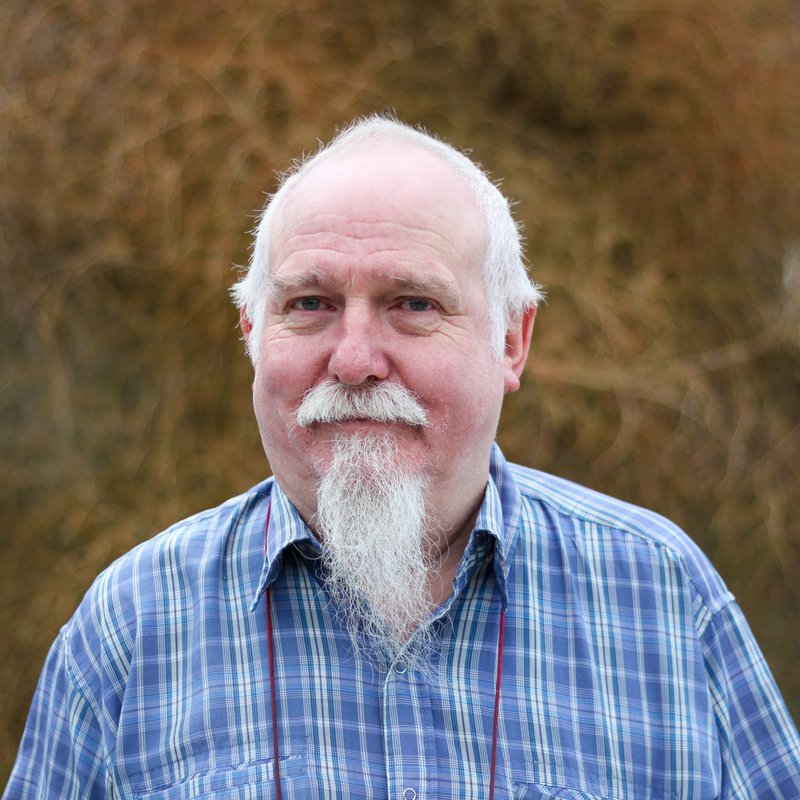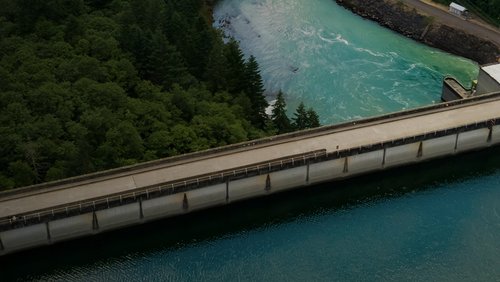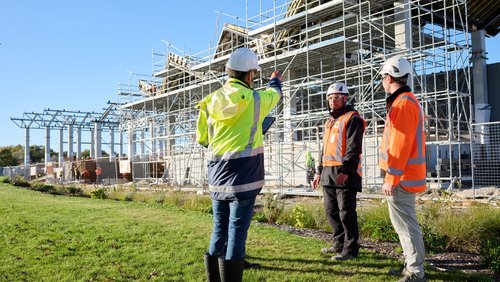29 Oct 2018
Northtec, based in Whangarei, teaches the New Zealand Diploma in Engineering (NZDE), specialising in civil engineering. This month, we catch up with Mike Mullany, the Principal Academic Staff Member at Northtec. Mike is an Affiliate member of Engineering New Zealand.
What is your role at Northtec?
Principal Academic Staff Member and coordinator for the Civil Engineering Programme.
Why did you decide to become an academic?
I’ve always enjoyed learning and research work, as well as having an empathy with students and wanting to enhance their learning experiences.
Due to Northtec's large geographical catchment, often students are at the campus only one day a week. How do you maximise contact time with students and keep them motivated on days when they don't have class contact?
About 30% of our students are full-time, and the rest part-time. Our timetable therefore is designed to focus on part-time students. We teach in four-hour blocks, thus necessitating only one visit by students per subject, per week. Also, part-time students are encouraged to do no more than two subjects a semester, necessitating no more than two classes a week. Additionally, we use lots of media for support for distance learning. This includes email with formula editor, texts, phone calls and skype.
How do you explain the Dublin Accord to your students?
We conduct a pre-registration interview with all our new students and returning students. The Dublin Accord is explained to new students at this interview, and they are shown a video on engineering. This includes details of the Dublin Accord, its international significance, and why students need to study to become technicians in Dublin Accord-accredited institutions. These details are revisited and expanded upon at the start of DE6101 Engineering management, in which most of the Dublin Accord Outcomes can be demonstrated. They are followed up further in the capstone project paper, DE6102 Engineering Project.

Mike Mullany
As an academic, how do you bring engineering to life?
We employ experienced tutors whose skills always focus on hands-on approaches. Wherever possible, we support all our teaching with practicals, projects, and report-writing, and site visits where feasible. Classes are supported by plenty of relevant video material, which helps makes up for those things which cannot be brought into the lecture room any other way. Students are encouraged to become Student members of Engineering New Zealand.
People skills are an important part of being a good engineer. How do you make your students aware of different cultures?
Our mantra here is, ‘Different but equal’. In group work, we try to put students of diverse ethnic and cultural backgrounds together, so they can get a more intimate and practical insight into how to work synergistically with diverse cultures. We observe groups in action, and where any individual is being left out of a group discussion, we intervene. Often this exclusion from discussion is culturally based, though not in terms of our indigenous New Zealand culture. It happens more with international students who have come from rather authoritarian backgrounds. Apart from this ‘hands-on’ approach, we also of course teach the required sections on the Treaty of Waitangi and the Resource Management Act in DE6101 Engineering Management, both of which have high cultural significance.
Why are you a member of Engineering New Zealand?
There are many advantages for the tutor of engineering to belong to the professional body. A few are: to keep in touch with key innovations in industry; to keep in touch with the local engineering fraternity, to seek advice on both educational and administrative matters from the professional body and the NZBED. Also, to network with other tutors in the field, especially when it comes to matters of common importance such as presentation of material and moderation. Other reasons are to set an example to students, thus encouraging them also to sign up to the professional body.
How do you engage with Engineering New Zealand?
Receive the publications, seek advice, set and moderate Board exams (most recently, the exam writer for DE4102 Engineering Maths 1), attend and read papers at the annual Tutors’ Forum, belong to and attend the monthly meetings of the Northland Branch of Engineering New Zealand and attend specialist subject meetings to help establish consistency of teaching and assessing.
What do you do in your spare time?
I have always been interested in music and East Asian horticulture. I taught the piano at one stage, and still enjoy playing it. I am interested in digital music, and for a while ran a short course on this. I cultivate Bonsai and maintain a nice little Japanese water garden at my home.




